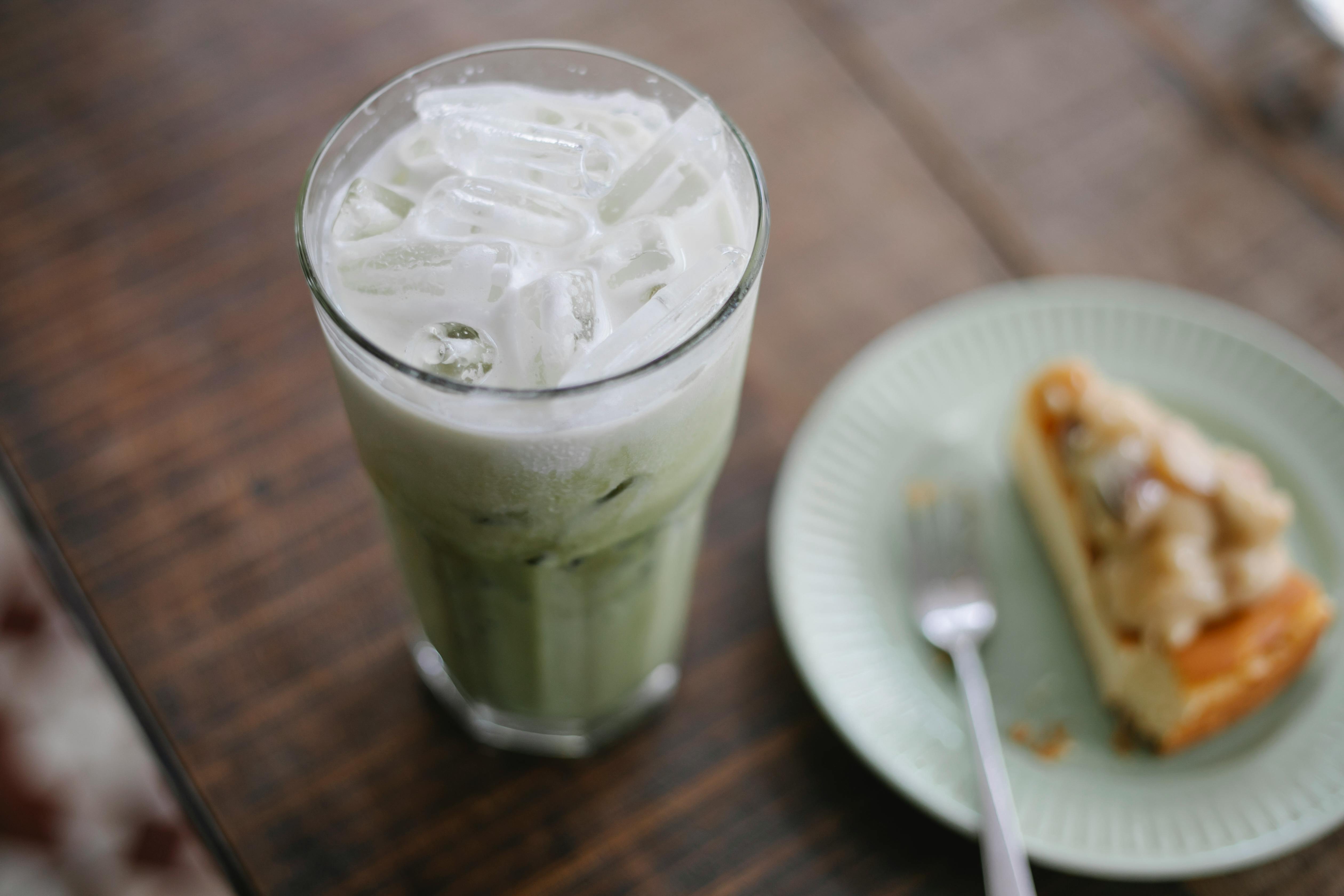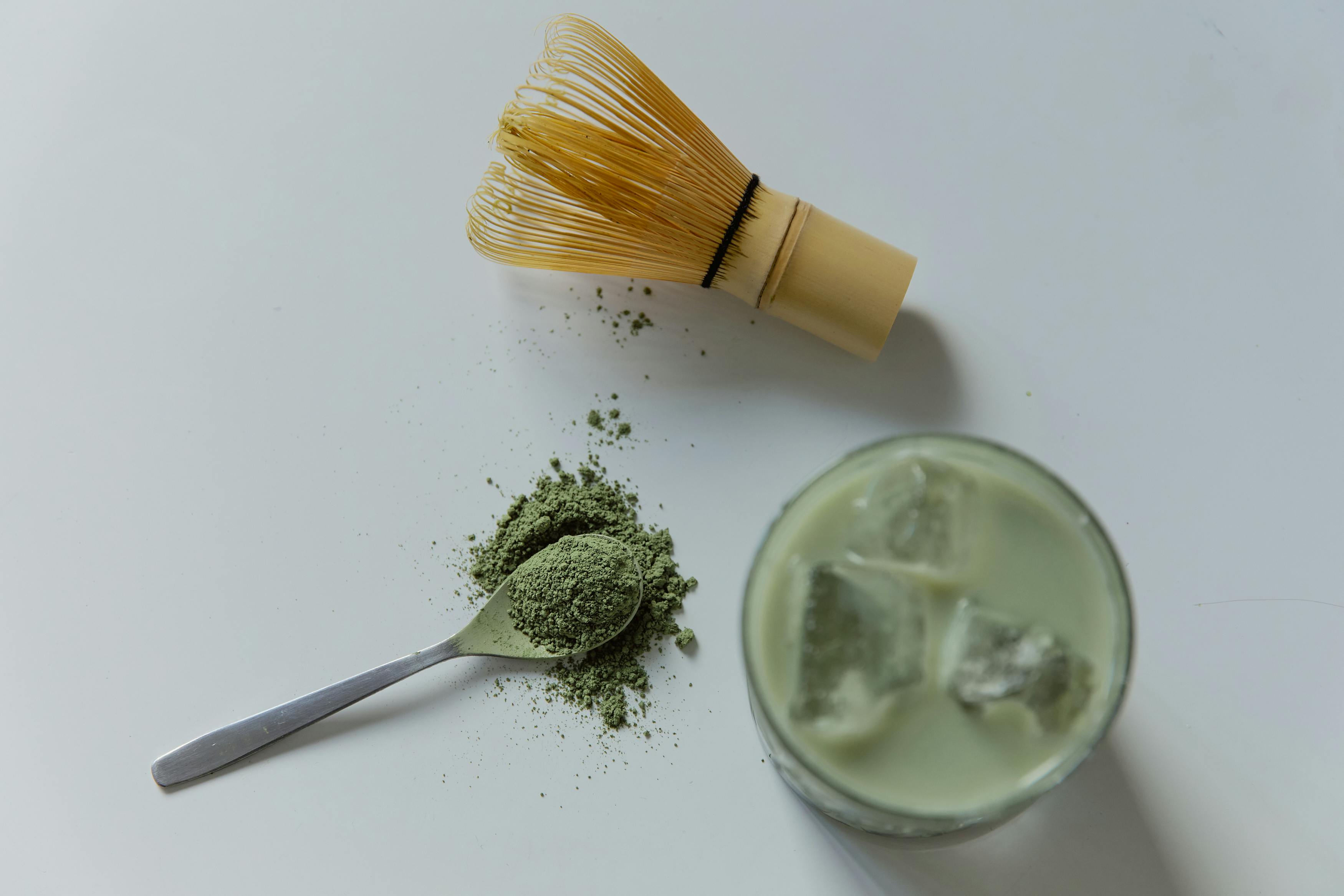Matcha tea has grown in popularity due to its numerous health benefits. While the drink may offer many advantages, it is important to know that it can also stain your teeth. In this article, we will discuss whether or not matcha tea can stain your teeth and how you can prevent staining.Yes, Matcha tea can stain teeth. The green powder is full of pigments called catechins that can leave a yellowish residue on the surface of teeth. To avoid staining, it is recommended to brush and floss your teeth after drinking Matcha tea.Matcha tea is a type of green tea that is made from the leaves of Camellia sinensis, the same plant which also produces white, black, and oolong teas. The leaves are shaded from the sun for several weeks prior to harvesting, which increases their chlorophyll content and gives them a bright green color. After the leaves are harvested, they are steamed and dried before being ground into a fine powder known as matcha.
Matcha tea is known for its distinct flavor and its vibrant green color. It has a naturally sweet taste with vegetal notes that can be enhanced by adding milk or sweetener. Matcha can be consumed as a hot or cold beverage, or used in baking and cooking to add flavor. It has become popular in recent years due to its high levels of antioxidants and other beneficial compounds such as caffeine, L-theanine, polyphenols, and fiber.
The Benefits of Matcha Tea
Matcha tea is a popular beverage that has been enjoyed for centuries in Japan. It is made from finely ground green tea leaves and has a unique flavor and health benefits. Matcha tea contains powerful antioxidants, can help boost metabolism and energy levels, and may even reduce the risk of some diseases. It also has a calming effect on the mind and body. Here are some of the many benefits of matcha tea:
Antioxidants
Matcha tea is a rich source of powerful antioxidants called catechins. These antioxidants help protect the body from free radical damage, which can lead to chronic illnesses such as cancer and heart disease. The catechins in matcha are also thought to help improve skin health and reduce signs of aging.
Boosts Metabolism
Matcha tea contains caffeine, which can help boost metabolism and increase energy levels. The caffeine in matcha is different from regular coffee because it does not cause jitters or an energy crash after drinking it.
Calming Effect
The amino acid L-theanine found in matcha tea has a calming effect on the mind and body. This makes it an ideal beverage for those looking to relax after a stressful day or reduce anxiety levels. L-theanine works by increasing alpha waves in the brain, which are associated with relaxation.
Reduces Risk of Disease
Studies have shown that matcha may reduce the risk of some diseases such as cancer, diabetes, and heart disease. This is due to its high antioxidant content, which helps protect cells from damage caused by free radicals.
Overall, matcha tea has many health benefits including its high antioxidant content, ability to boost metabolism and energy levels, calming effect on the mind and body, and potential to reduce the risk of certain diseases. If you’re looking for an enjoyable beverage with numerous health benefits, consider adding matcha tea to your diet today!
Ingredients in Matcha Tea
Matcha tea is made from finely ground green tea leaves, called tencha. This powdered form of green tea is the primary ingredient in matcha tea. It contains all the essential nutrients and antioxidants found in green tea leaves, offering a range of health benefits. Other ingredients that can be found in matcha tea include amino acids, chlorophyll, and naturally occurring caffeine. Matcha also contains high levels of vitamin A, vitamin C, iron, calcium, and magnesium. All these ingredients provide a unique blend of antioxidants and essential nutrients that help promote health and wellbeing.
A good quality matcha will also contain L-theanine, an amino acid known for its calming effects on the body and mind. This compound helps to balance out the naturally occurring caffeine in matcha and gives it a unique flavor profile compared to other types of green tea. Additionally, some matchas may contain other natural flavorings such as fruits or herbs to enhance the flavor profile or add additional health benefits.
Making Matcha Tea
Matcha tea is a traditional Japanese green tea, made by grinding green tea leaves into a fine powder. The powder is then mixed with hot water to create a bright green, frothy drink. Matcha is full of antioxidants and has many health benefits, making it an ideal choice for those looking to improve their overall wellbeing. Making matcha tea at home is easy and requires only a few simple steps. Here is how to make the perfect cup of matcha tea:
Step 1: Gather Your Supplies
To make matcha tea, you will need the following supplies: matcha powder, a bowl or mug, a teaspoon, a whisk (preferably bamboo), and hot water. Once you have all the necessary supplies gathered, you are ready to begin.
Step 2: Measure the Matcha Powder
Using the teaspoon, measure out 1-2 teaspoons of matcha powder and add it to your bowl or mug. If you want your tea stronger, add more powder; if you want it weaker, add less.
Step 3: Add Hot Water
Add 2-4 ounces of hot water (not boiling) to your bowl or mug. Make sure not to add too much water as this will dilute the flavor of your tea.
Step 4: Whisk It Up
Using your bamboo whisk (or other whisk if necessary), vigorously whisk the mixture together until it becomes frothy. This should take about 30 seconds.
Step 5: Enjoy!
At this point your matcha tea should be ready to drink! Enjoy it as is or feel free to add sugar or honey for extra sweetness.

Potential Dangers of Drinking Matcha Tea
Matcha tea has recently become very popular due to its many health benefits. However, there are potential dangers associated with drinking it that people should be aware of. Although consuming matcha tea can provide many benefits, it is important to be aware of any potential risks and how to avoid them in order to safely enjoy this beverage.
One potential danger of drinking matcha tea is that it contains a naturally-occurring compound called oxalates. Oxalates are found in some types of foods and can accumulate in the body over time. If consumed in large amounts, oxalates can lead to kidney stones and other health problems. Therefore, it is important to limit your intake of high-oxalate foods such as matcha tea if you are prone to developing kidney stones or have a history of them in your family.
Another potential danger associated with drinking matcha tea is the caffeine content. Matcha tea contains large amounts of caffeine, which can cause side effects such as insomnia, anxiety and headaches if consumed in excess. It is important to be mindful of how much caffeine you consume from all sources, including matcha tea, in order to avoid these negative side effects.
Finally, pregnant and breastfeeding women should avoid drinking matcha tea due to its caffeine content and potential health risks associated with high levels of oxalates during pregnancy and breastfeeding. It is best for these women to speak with their healthcare providers before consuming any caffeinated beverages while pregnant or breastfeeding.
In conclusion, while there are many health benefits associated with drinking matcha tea, there are also some potential dangers that people should be aware of before consuming this beverage. It is important to be mindful of your intake and speak with your healthcare provider if you have any questions or concerns about consuming matcha tea.
Potential Side Effects of Drinking Matcha Tea
Matcha tea has gained immense popularity due to its numerous health benefits. However, it is important to note that drinking too much matcha tea can lead to certain side effects. The most common side effects include digestive issues such as bloating, cramping and nausea. Overconsumption of matcha tea can also lead to headaches and dizziness.
Another potential side effect is an increase in the risk of liver damage. High amounts of caffeine in matcha tea can cause your liver to overproduce enzymes which may result in liver damage. Also, if you are pregnant or nursing, it is advisable to consult your doctor before drinking matcha tea as it may contain high levels of caffeine that could affect the baby’s health.
Matcha tea may also cause allergic reactions in some individuals. Symptoms such as skin rashes, hives and itching may occur if you are sensitive or allergic to caffeine. Additionally, people who are sensitive to green tea may experience similar reactions when consuming matcha tea.
It is important to note that most of the above side effects occur when ingesting large amounts of matcha tea on a regular basis. Therefore, it is best to moderate your consumption and drink only one or two cups a day for maximum benefits without any adverse effects on your health.
Is Matcha Tea Bad for Your Teeth?
Matcha tea is a popular beverage and is gaining in popularity due to its many health benefits. But is Matcha tea bad for your teeth? The answer depends on how you drink it, what type of Matcha you consume, and the amount of sugar you add.
Matcha tea is made from ground green tea leaves, and contains polyphenols which are powerful antioxidants. These can be beneficial to dental health because they help reduce inflammation and fight bacteria. They also promote healthy teeth by reducing plaque buildup, which can lead to cavities and other dental problems.
However, it’s important to note that Matcha tea does contain caffeine, which can be damaging to the enamel of your teeth if consumed in large amounts. It’s best to limit your intake of caffeine-containing beverages like Matcha tea and stick with sugar-free versions or those sweetened with natural sweeteners such as honey or agave syrup.
Another potential problem with Matcha tea is that it contains oxalates, which can lead to the formation of calcium oxalate crystals in the mouth. Calcium oxalate crystals can irritate the gums and cause sensitivity in some people. If you have sensitive teeth or gums, it’s best to avoid drinking too much Matcha tea or use a low-oxalate variety such as matcha powder made from young green leaves.
Overall, Matcha tea has many health benefits but may not be ideal for everyone’s dental health depending on how it’s prepared and consumed. To keep your teeth healthy while still enjoying the benefits of Matcha tea, try limiting your intake of caffeinated varieties and opting for low-oxalate options when possible.

Conclusion
Matcha tea is a great source of antioxidants and is known to have a number of health benefits. However, it also has the potential to stain your teeth. While the staining effect of matcha tea can be minimized by drinking it through a straw, brushing your teeth after consuming it, and drinking plenty of water afterwards, it is still important to be aware that it can stain your teeth. If you are concerned about this, you may want to consider switching to other types of tea or only drinking matcha occasionally. Ultimately, the decision is up to you and what works best for your lifestyle and dental health.
Overall, matcha tea can be an excellent addition to your diet but you should be conscious of its potential effects on your teeth if you choose to drink it regularly. By following some simple tips and taking preventative measures, you can reduce the likelihood of staining and enjoy all the benefits that matcha tea has to offer.
